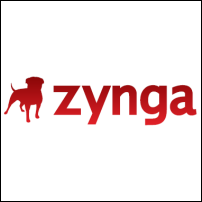
There is still hope that the company can recover. The social gaming business is highly hit-driven; just as Zynga gained off of a good run of popular games, and has cooled lately as its offerings have lost their luster, in the next few months games Zynga has not even released yet could bring it large increases in revenue. Zynga has also drawn attention for its work on developing gambling games, using real money- a potential company-saver but something that would obviously be illegal in the U.S. While Zynga could certainly launch any gambling programming outside the United States and still potentially make it big business, the biggest gains would almost certainly have to come from pushing for changes to government regulations domestically.
As things stand now, however, the stock is down dramatically from its IPO price and has hurt investors small and large accordingly. As of the end of March, Partner Fund Management, which is managed by Christopher James, reported owning 4.2 million shares of ZNGA on its 13F filing, and valued those securities at $55.6 million. If Partner did not sell any of its shares, the losses on this position come out to about 3/4 of that value- over $40 million. Assuming that Partner charges its LPs a 20% performance fee, the standard in the hedge fund industry, James and his partners would then have missed out on $8 million in potential income from gains on other investments. Of course Partner may have sold some of its shares before now; it may also have added to its position as the stock price fell, at least initially (find out how Partner’s other stock picks have done).
Another pair of hedge fund managers who could be offsetting profits elsewhere with Zynga losses is Seymour Kaufman and Michael Stark of Crosslink Capital. Crosslink reported 2.1 million shares, half as many as Partner did, and therefore has lost $20 million of its investors’ money assuming that it has not changed the number of shares in its portfolio (again, the number could have increased or decreased since the beginning of April). The potential decrease in carried interest due to this investment is half of Partner’s- $4 million- and to make matters worse, Crosslink reported that its largest 13F holding was Pandora Media (NYSE:P), which is down about 5% over the same period (see other stocks in Crosslink’s portfolio).
Next month 13F filings for the quarter ended June 30th will be released. Insider Monkey will review these filings to see if the funds mentioned here reduced their positions in time, and if any other hedge funds may have taken million-dollar losses on Zynga’s disappointing performance. We wouldn’t recommend the stock at this moment, given the huge uncertainty and recent poor performance.